Organizing for power winner
Creators
Who is behind this?
Idea
Idea pitch
If activism rose lately, this only happens for the middle-class citizens in the big cities, whose basic needs are already met, while people experiencing poverty or lack of access to basic services, are left behind, with their voices unheard nor their needs met.
To respond to this context, we intend to put community organizing and advocacy in the service of people living in deprived rural communities, aiming to increase activism and engagement, but also to challenge inequity and injustice.
Where will your project idea take place?
3 villages in Arges, Giurgiu and Braila County, to be selected based on deprivation related criteria
What is the specific societal challenge faced by this region?
People in deprived rural communities face a wide range of challenges: scarcity of basic resources, poor infrastructure, reduced access to public services. Romania registers the highest levels of divide in the EU between urban and rural, reflecting in poverty risk (37,3% rural - 6,1% urban) or in no. of people neither in employment nor in education or training (23% Rural, 10,3% Urban).
Their needs are being largely ignored by authorities, and most of the society blames them for being poor. Lack of voice and lack of representation of interests are deepening the problems above, if not even being on their root. People are lacking the skills and are not aware about the democratic mechanisms of representation, they feel abandoned by society and lack the power to advocate for their communities.
Who are you doing it for?
We are targeting citizens experiencing poverty in 3 villages. In each village we aim to identify people with activist potential but who are currently disengaged. Using participatory instruments, the community organizers shall facilitate in-depth discussions among community members to provide space for them to debate about their issues, to understand what they have in common and what issues should be at the core of their collective action. For each community, we expect to reach out to 75 - 100 people in the first stage, identify a core group of 5-10 potential activists and later get the engagement of 25–75 in advocacy efforts.
The local and county authorities would be the target of advocacy work aimed at opening the space for participation for the citizens that are traditionally excluded.
How do you plan to get there?
The long-term mission of this program is to help people experiencing poverty to unite at the level of their communities and demand better access to public services and resources, by using democratic means of participation.
The methodology we will use is community organizing. We follow a classic 4 steps community organizing model – listening the community, documenting the problems, building local power and advocate for change. Yet, for the advocacy level, the community organizers and CeRe team will leverage their own resources to support the local communities when needed. Even if on short and medium term, the community organizers will have a more prominent role when needed, the long-term vision is to gradually transfer the leadership to the local community.
What are the expected results?
Such a community organizing process shall be longer than a year to produce lasting results. Yet, after one year of work, we expect to see:
- increased trust and skills for the local citizens and a better understanding of their rights as well as of their potential to change the status-qvo and effectively advocate for their communities’ interests;
- groups of citizens (in their early stage of development) to act as community-based organizations;
- advocacy initiatives engaging the communities’ members and challenging the balance of power in the 3 villages in the advantage of the most deprived.
In the long run, we seek to contribute to the development of the citizens groups into local structures willing, able and ready to defend the rights and interests of their communities.
How does your idea strengthen active citizenship at a local and community level?
Community organizing is proven to form new grassroot leaders, and to unlock the power of the powerless. It has active citizenship on its core, being focused on getting people organized to get engaged with the decision-makers.
Step by step, the project will build up self-esteem, create awareness about people’s rights and democratic mechanisms and will support the communities to get engaged in and to lead advocacy efforts. Working with trained community organizers, the citizens will gain their place at the decision-making table and get engaged with how the resources are distributed and how the problems of their communities are addressed. Meanwhile, public officials will be exposed to advocacy efforts, to enlarge the space for participation and include various voices in the public affairs.
Why is this idea important to you?
In the last years, public participation became more vibrant, with people being more demanding towards the state institutions and more willing to get engaged. Yet, much more needs to be done to serve those whose voices are the weakest. As elsewhere, our public authorities prioritize the measures benefiting the haves and leaves have-nots behind, which contributes even more to the already existing disparities. We say about CeRe that “together with citizens, organizations and communities, we build day by day a just and equitable world, where people stand together and their voices are central to the decision-making processes”. If we are to stay true to our mission, we need do more to unlock the power of the marginalized so that they are able to get involved in how their needs are addressed.
€ 53877,-
Total budget
€ 50000,-
Funding requested from Civic Europe
Major expenses
Management: 10995 - part time coordinator and admin staff
Community organizers & mentor: 24177 - community organizers salaries and the input of a senior mentor
Travel expenses&meetings: 14505 - a residential gathering of citizens and organizers to share progress and experience, transportation to the local communities, refreshments for citizens’ meetings
Local advocacy: 1500
Office supplies&related: 2700
To balance the total budget, we will reach out to our current individual donors.
What do you need from the Civic Europe community?
Inspirational examples of community organizing in impoverished areas.
Feedback on our approach to empower the powerless.
Building campaigns lead by people in-need.
How to overcome fear of oppression.
Project Journey
Ciobotea -summer civic activities
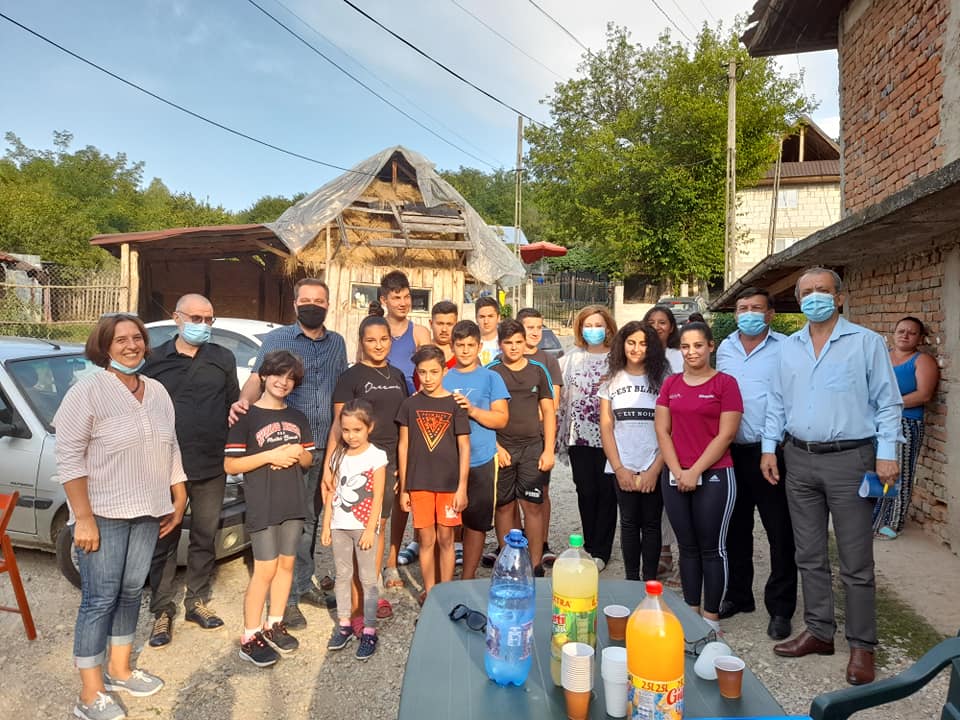
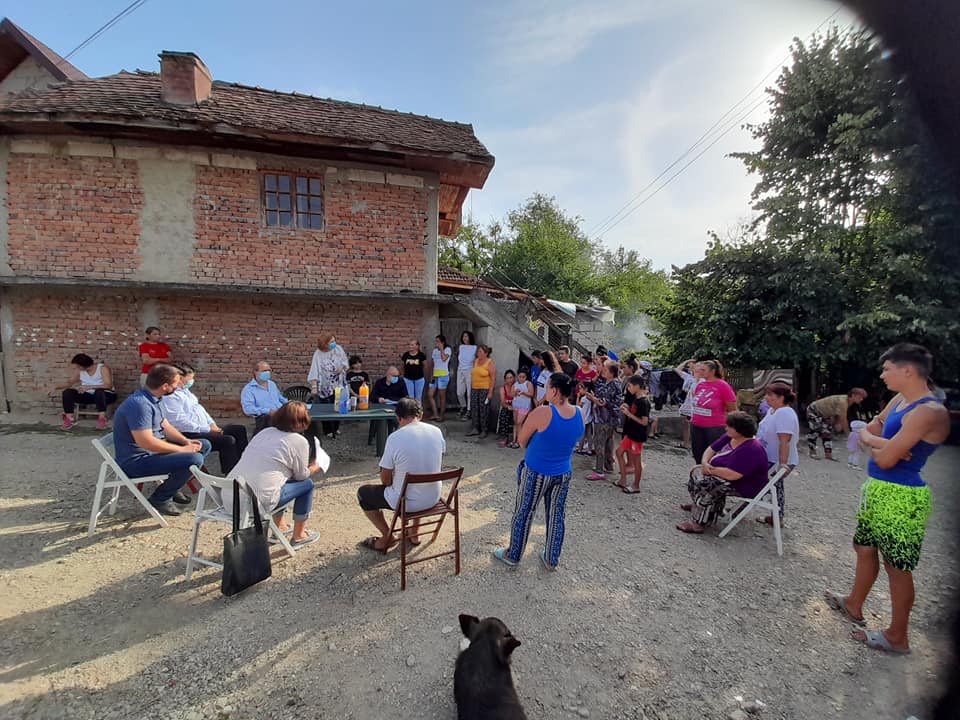
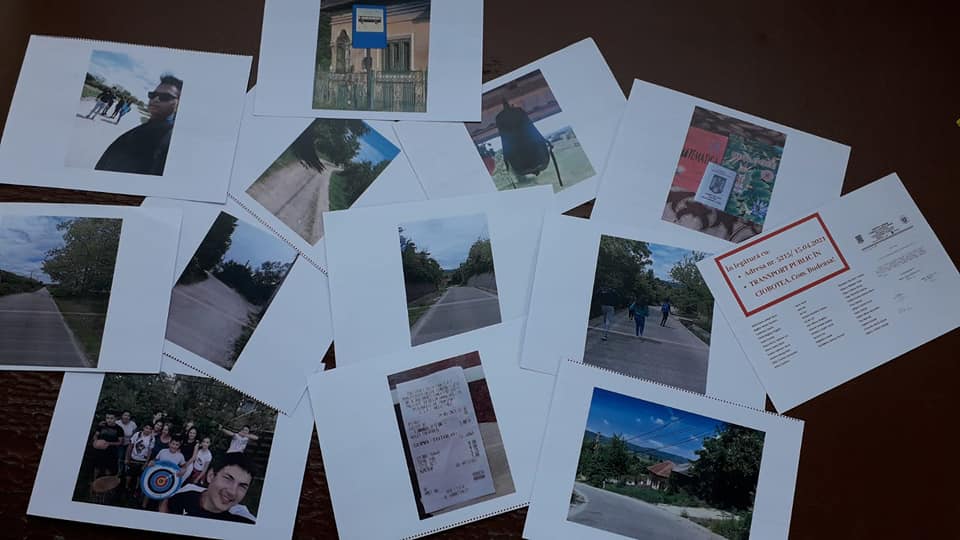 Following the submission of a petition regarding the problem with the water pressure, the problem was resolved. The younger population together with the community organizer implemented a campaign in order to raise awareness amongst the 35 County Counselors about the problem of public transportation in Ciobotea
Following the submission of a petition regarding the problem with the water pressure, the problem was resolved. The younger population together with the community organizer implemented a campaign in order to raise awareness amongst the 35 County Counselors about the problem of public transportation in Ciobotea
They submitted messages and postcards from the local school and high-school students at the County Council – part of the campaign that seeks to raise awareness amongst the 35 County Counselor about the problem of public transportation in Ciobotea.
This collective process had multiple steps:
- Researching and documenting the local transportation problem
- All students wrote messages for the elected officials
- The youth made relevant photos in the village
- Consultation about the form and contented of the postcards
- labeling and archiving the 35 packages with the postcards
- the postcards will also be sent to the transport company and the Hall of Budeasa in order to increase the visibility of the campaign
- in the letter that accompanies the postcard, the group asks for an audience at the County Council in order to discuss possible solutions for the problem
Izvoru -summer civic activities
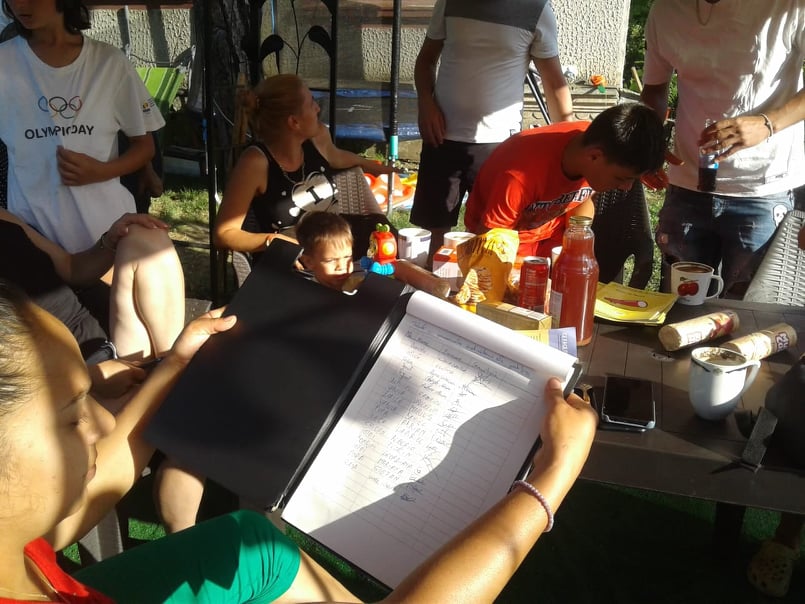
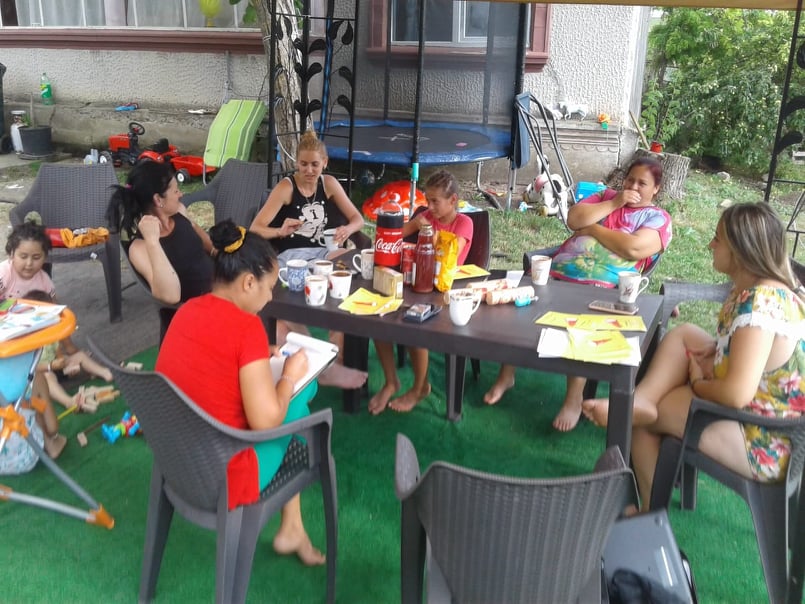 In July, the group that was formed in the village of Izvoru, part of the Gogosari commune, had multiple meetings in which they discussed the main issues that they want to bring forward in their talks with the authorities.
In July, the group that was formed in the village of Izvoru, part of the Gogosari commune, had multiple meetings in which they discussed the main issues that they want to bring forward in their talks with the authorities.
At the begging of July, the group put forward a petition in which they demand the creation of a pharmacy in the commune because the nearest one is in Giurgiu which is 30 km away. The village of Izvoru has many elderly citizens, mothers with small children. They have low mobility and are depended on their medical prescriptions.
The group managed to gather 39 signatures from the citizens of the village which want the creation of a new pharmacy or the reopening of the one that existed.
Likewise, the group put forward a request to the Hall of Gogosari in which they demanded the redevelopment of the park in Izvoru. This entails: swings for children under 10, a fence that would delimitate the park, adding safety elements under the slide, the construction of a pavilion so people can have a place safe from the sun; the recondition of the benches, trimming down the excess vegetation and the cleaning of the area. They also want trash bins to be installed in areas that are often frequented by people. These locations are: the park in the middle of the village, the cemetery and spring area in Strada Fantanilor (Spring Street).
The request and petition were submitted to the Hall of Gogosari and they are still waiting for an official answer but they meet the mayor when they went to submit the two documents and he was open to take part in a meeting with the citizens of Izvoru in order to talk about the problems that they identified in their community.
Usually at the group meetings, the number of participants varies, the lowest number was 3 participants, the highest was 10 but most times we have between 6-7 people who participated from which 3 are more eager to get actively involved while the other stay and listen, give examples or say what changes they would like to see in the community.
Plans for the future:
- A meeting between the mayor and the group of citizens
- Organizing an event for adults and children in the park in Izvoru, in September, where they will discuss about how they want the park to look and we will also have creative activities for the children. We will invite the teachers and students from the school in Gogosari to participate
Following the responses that the local authorities give to the petition and the solicitation regarding the trash bins.
Latinu -summer activities
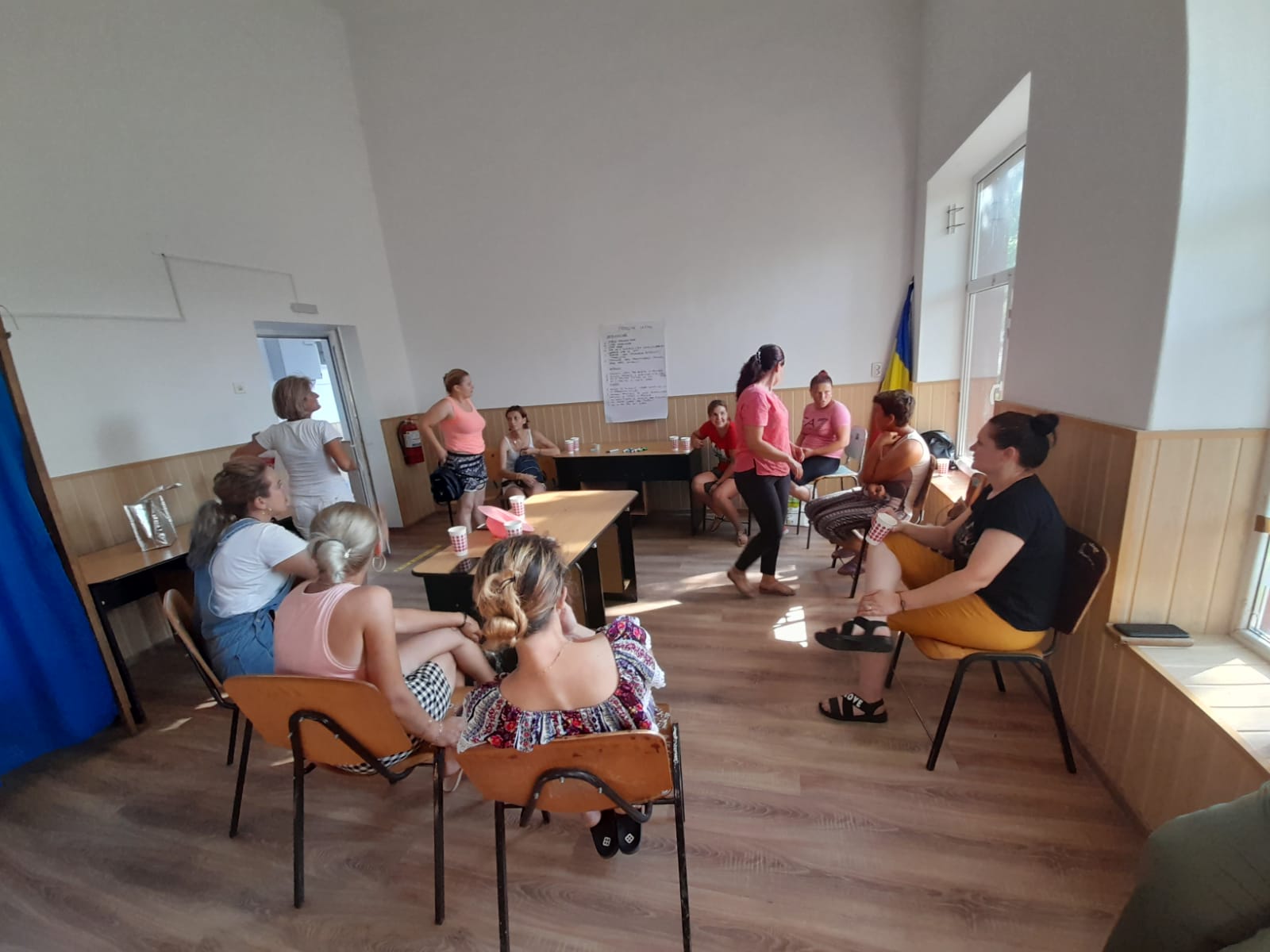
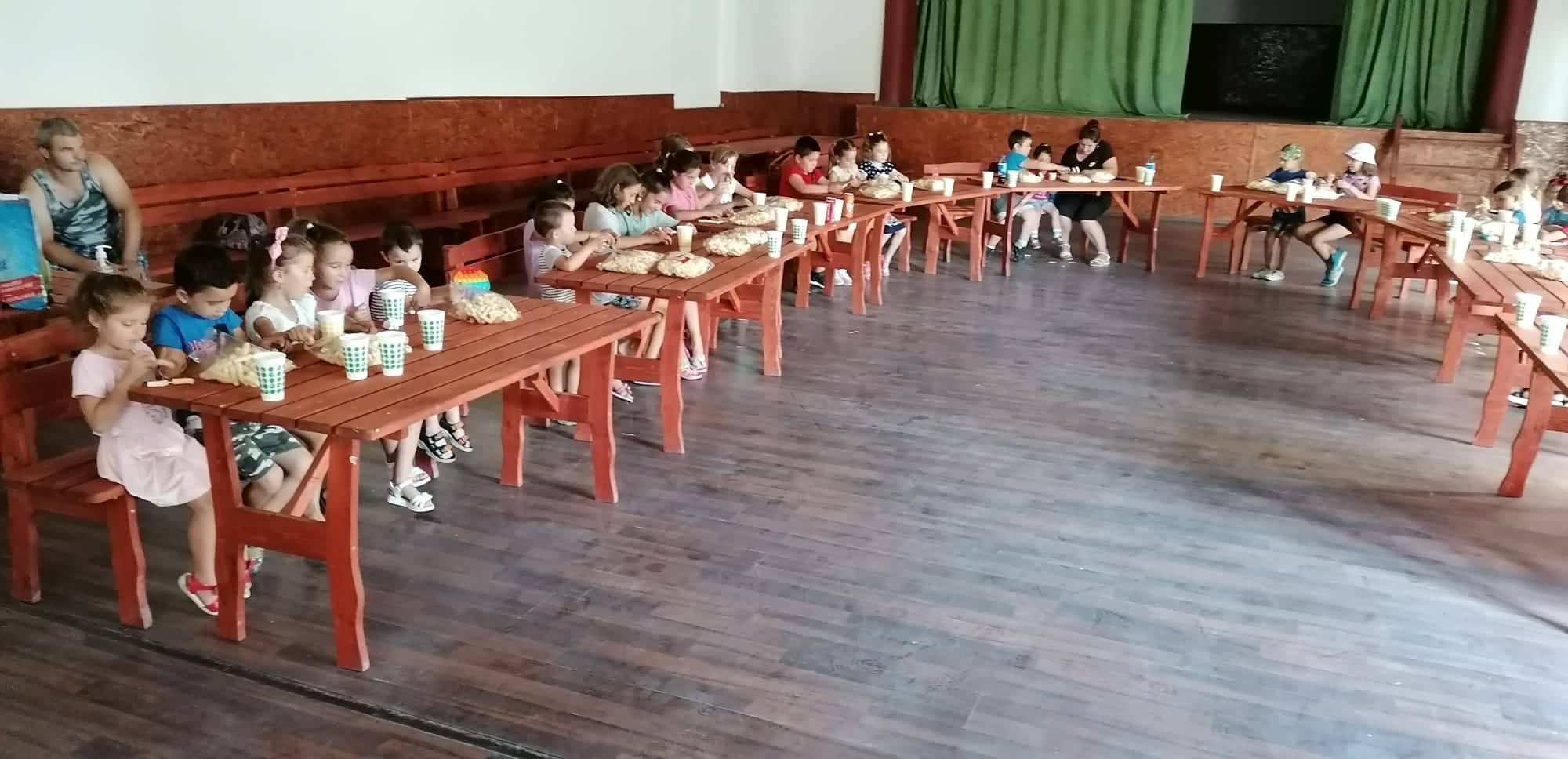
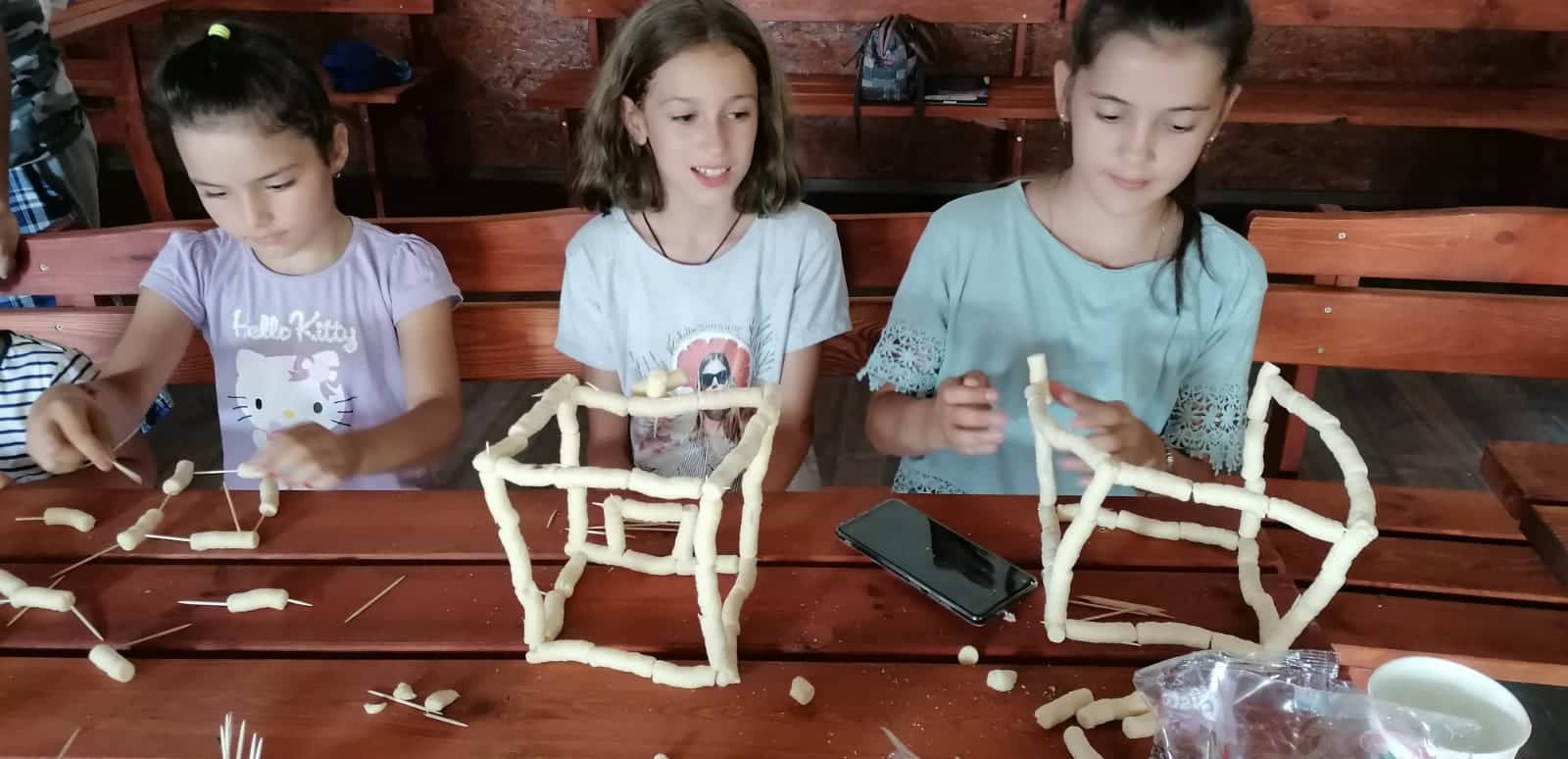 In Latinu there were 2 workshops in which participated 13 parents and 29 children. During this workshops the parents discussed about the problems that affect the community and they selected 5 on which they would like to work on.
In Latinu there were 2 workshops in which participated 13 parents and 29 children. During this workshops the parents discussed about the problems that affect the community and they selected 5 on which they would like to work on.
The first 3 are related to infrastructure (asphalting, sewerage, water quality), the others were the lack of a pharmacy/dispensary and the need for the students to travel to Maxineni.
The children made architectural structures from corn snacks, they drawn and listen to a story told by a volunteer.
Latinu
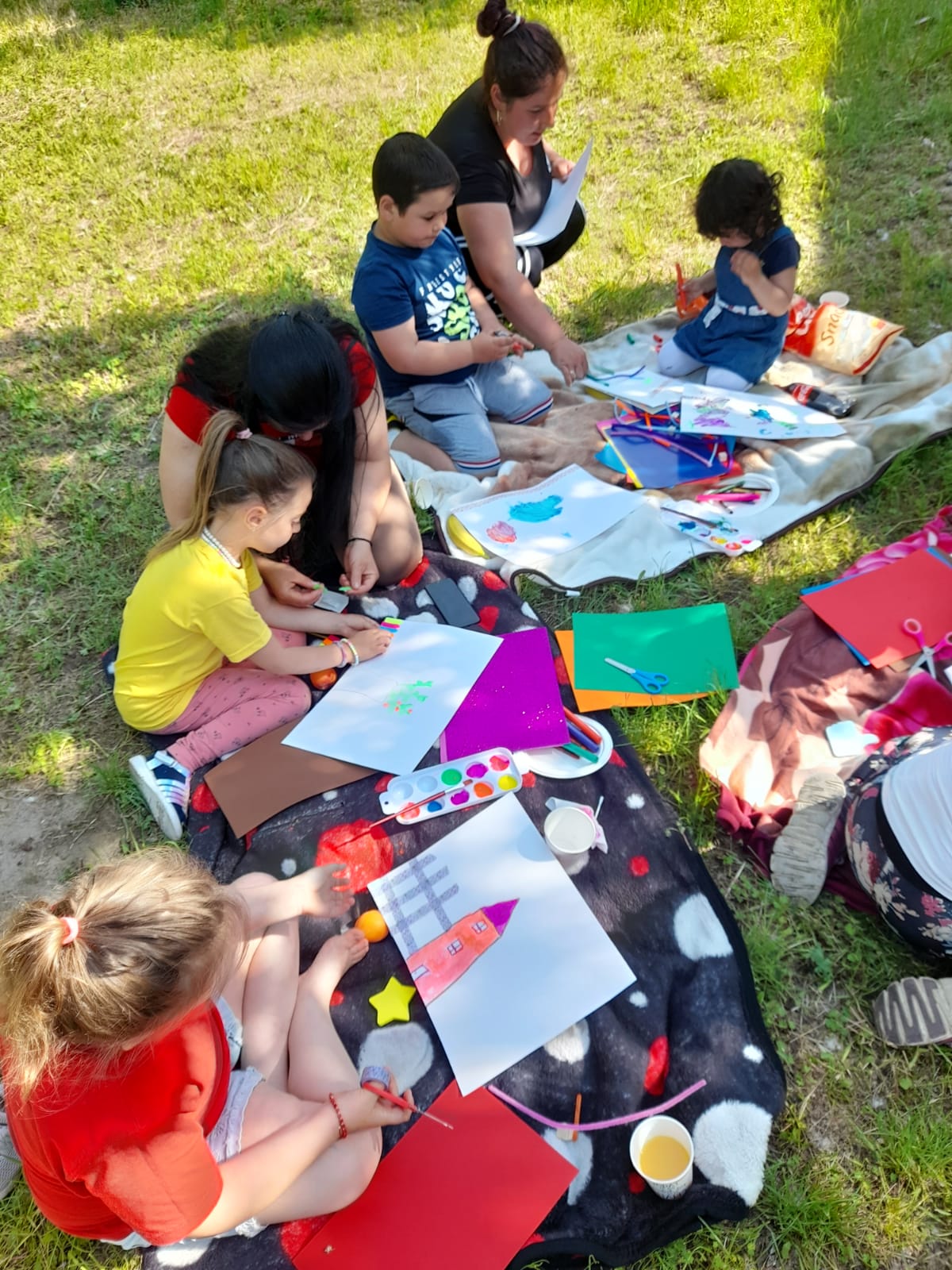
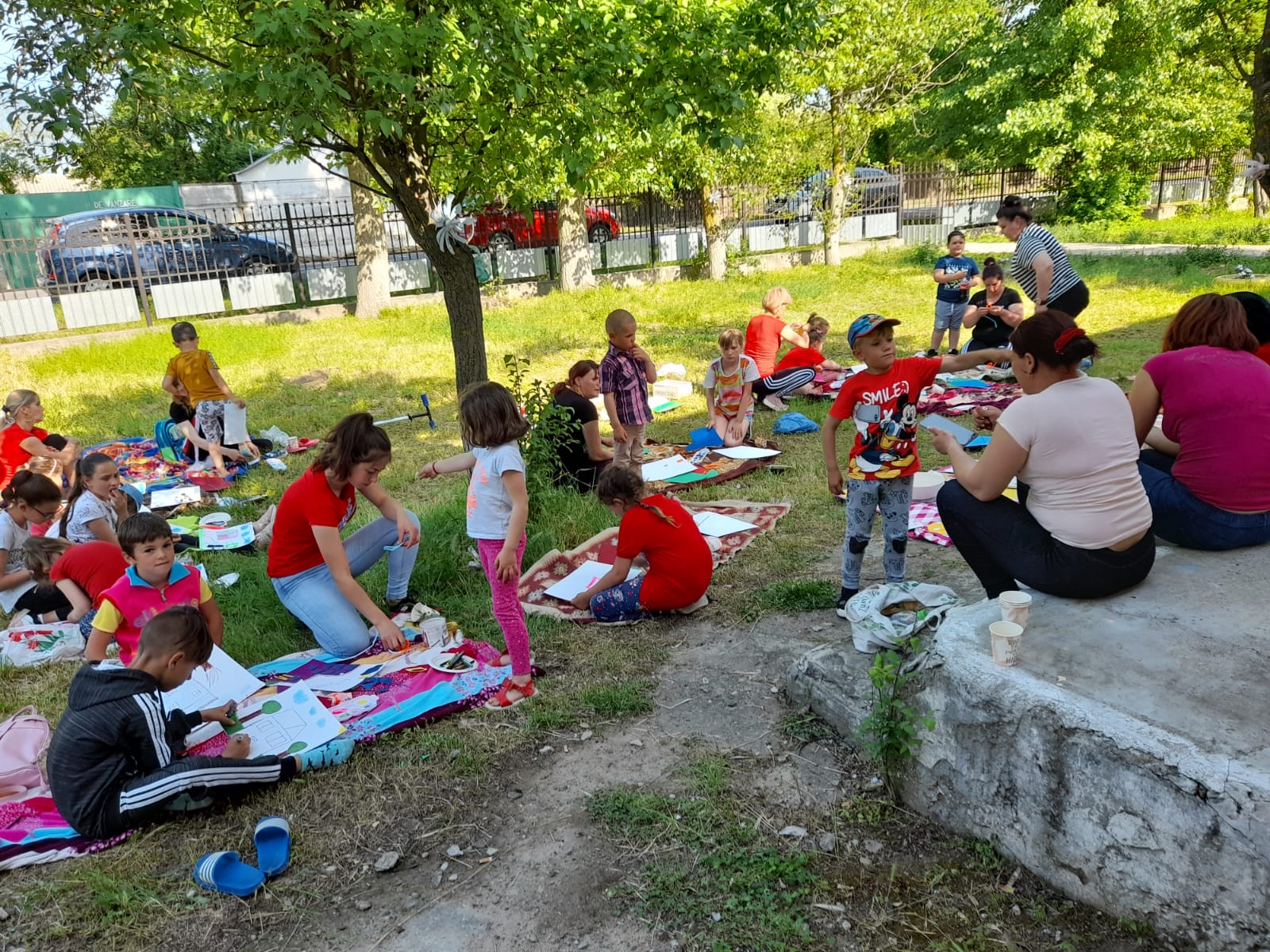
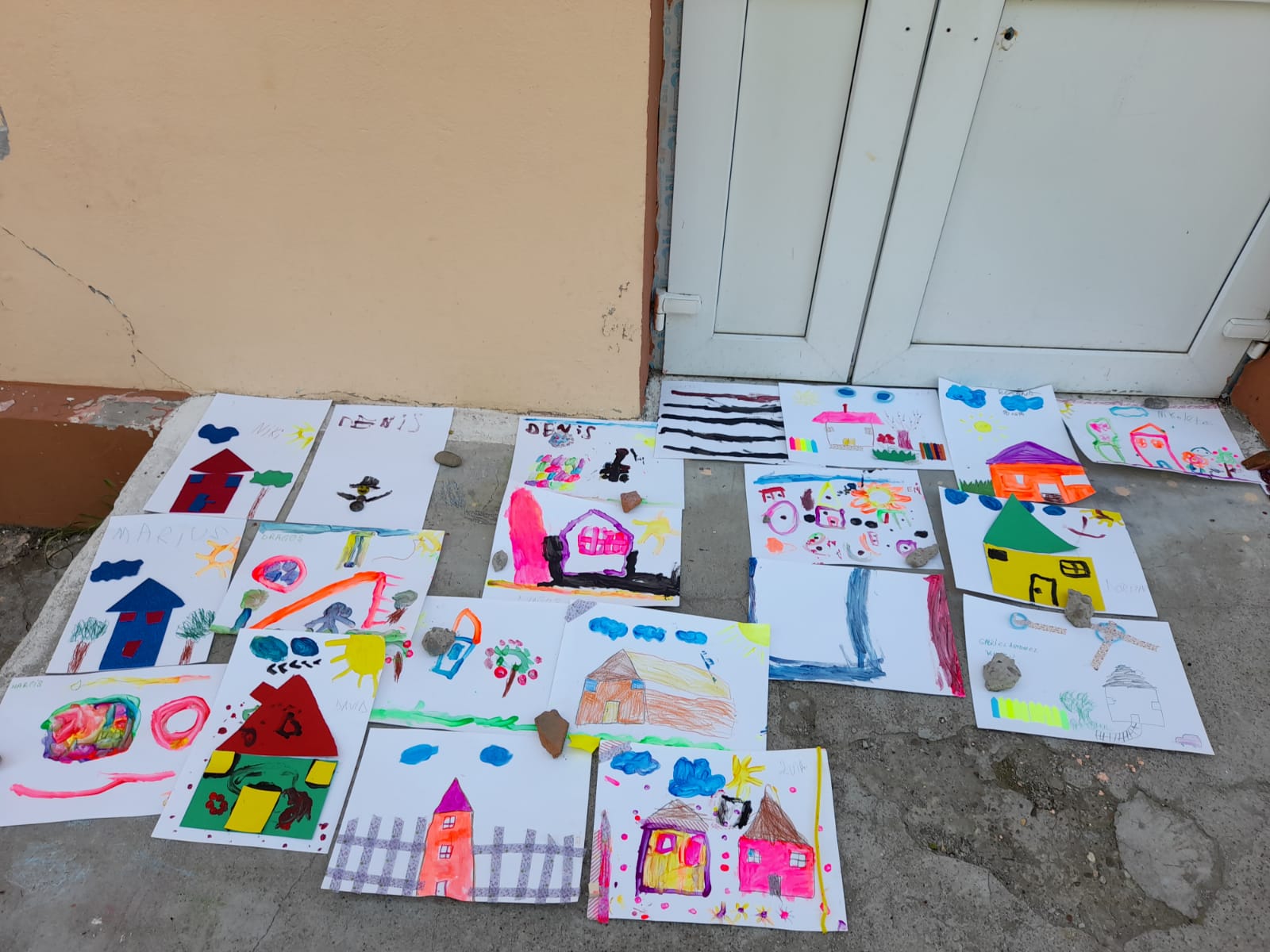 In Latinu, the citizens are more sceptical and reluctant when it comes to civic involvement
In Latinu, the citizens are more sceptical and reluctant when it comes to civic involvement
The community organizer managed to interview 45 citizens from the commune and thus managed to identify the problems which they face. After the questionnaires were answered, the most pressing problems are the lack of infrastructure (roads, water and gas pipes) and the lack of a school in the village, a problem which forces the children from the village to commute to the school in the neighboring commune.
The community organizer had a number of meetings with one of the locals. After many unsuccessful attempts to bring together the people of the community, she managed to organize a workshop for the parents and their children with the main theme being “My village”. Twelve mothers with their children participated to the event. Even if the workshop was a creative one, that focused on the children, it was a good opportunity for the team to get into contact with the community.
After this workshop, Gabriela, the community organizer, will contact all the persons who answered the interviews in order to present to them the conclusions that were reached and the problems that were identified. With the mothers from the workshop, she will continue to have a discussion about the steps that they need to follow in order to find a solution that will allow their children to go to school in their village.
Izvoru
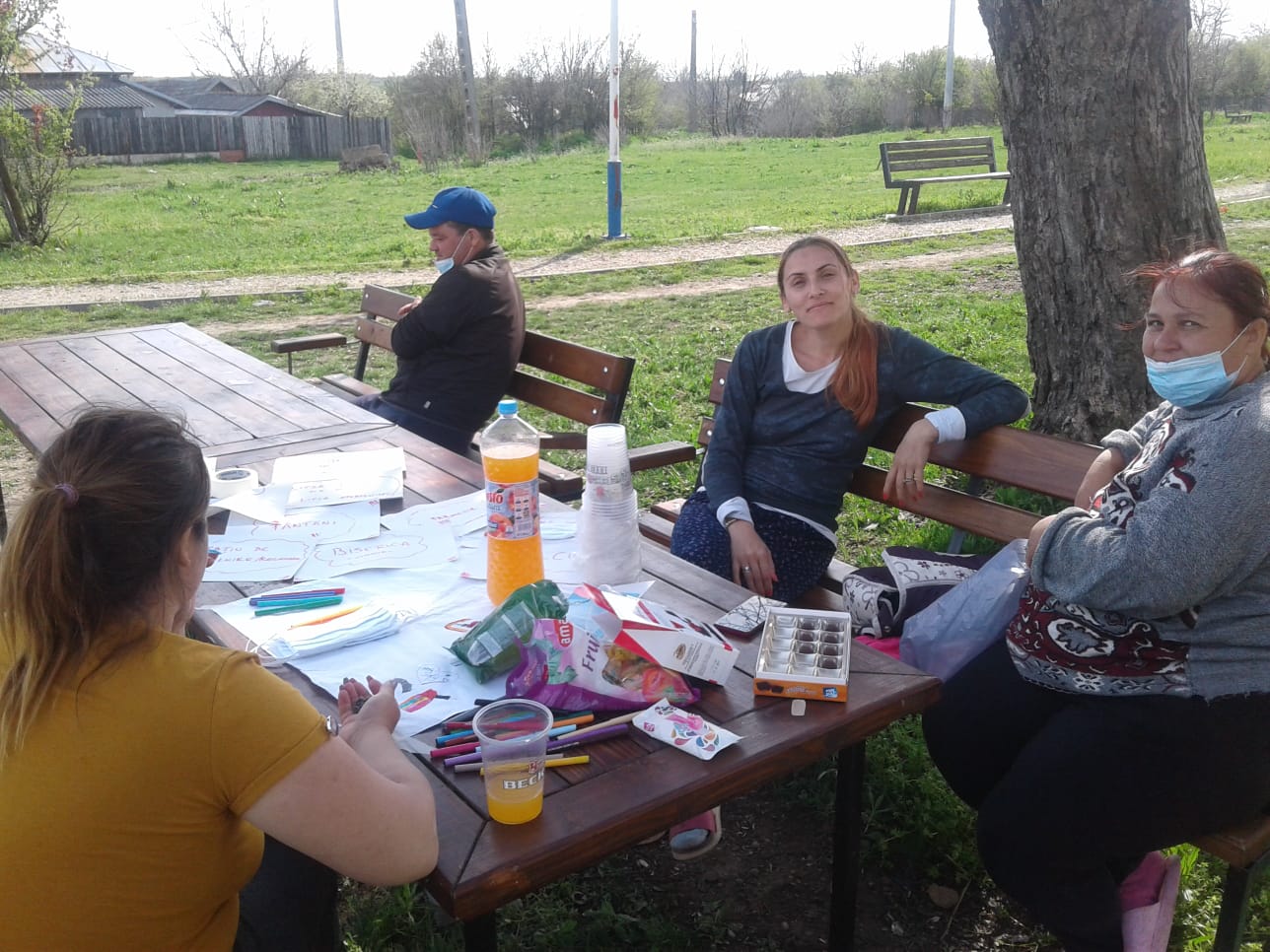
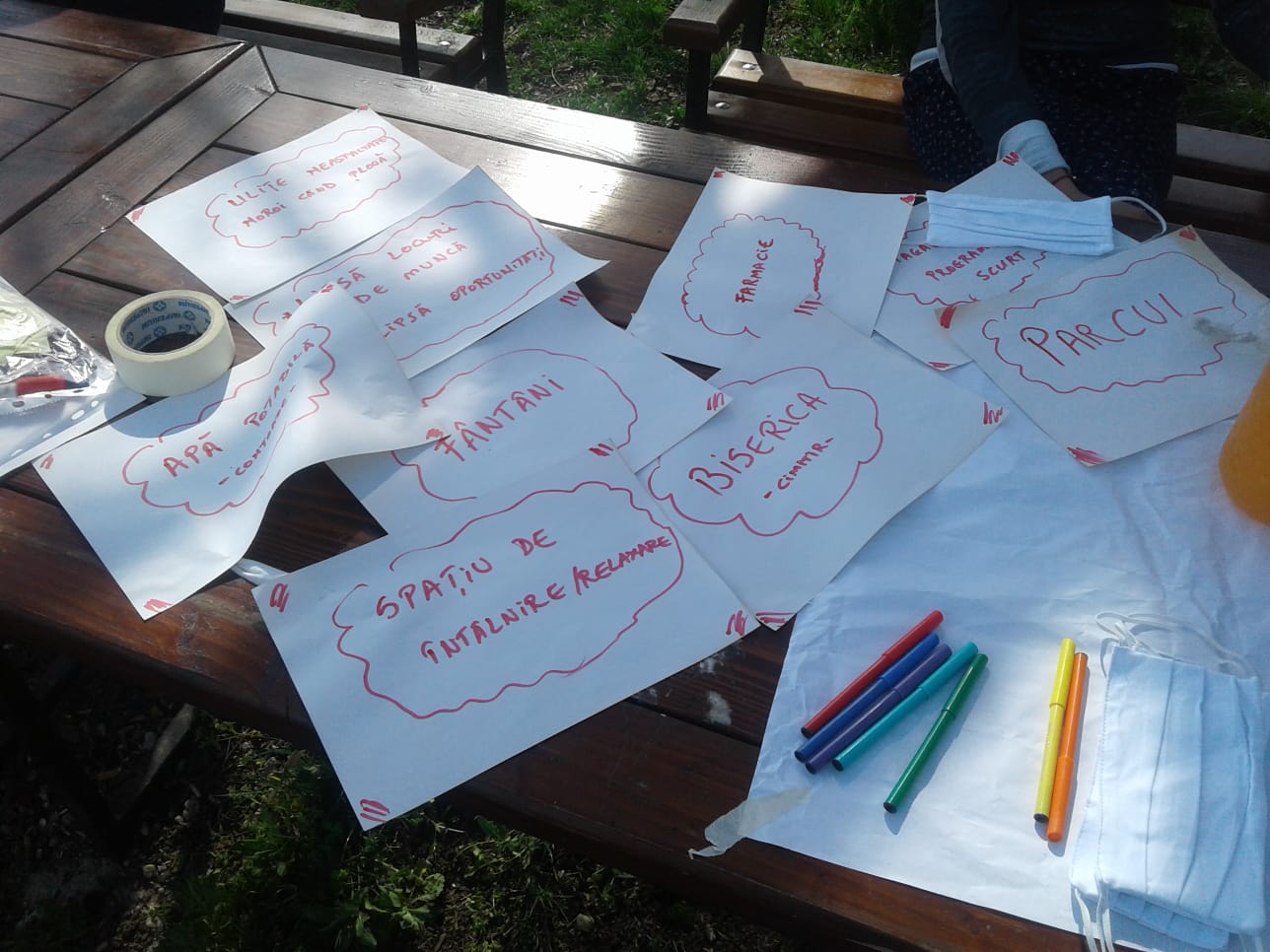
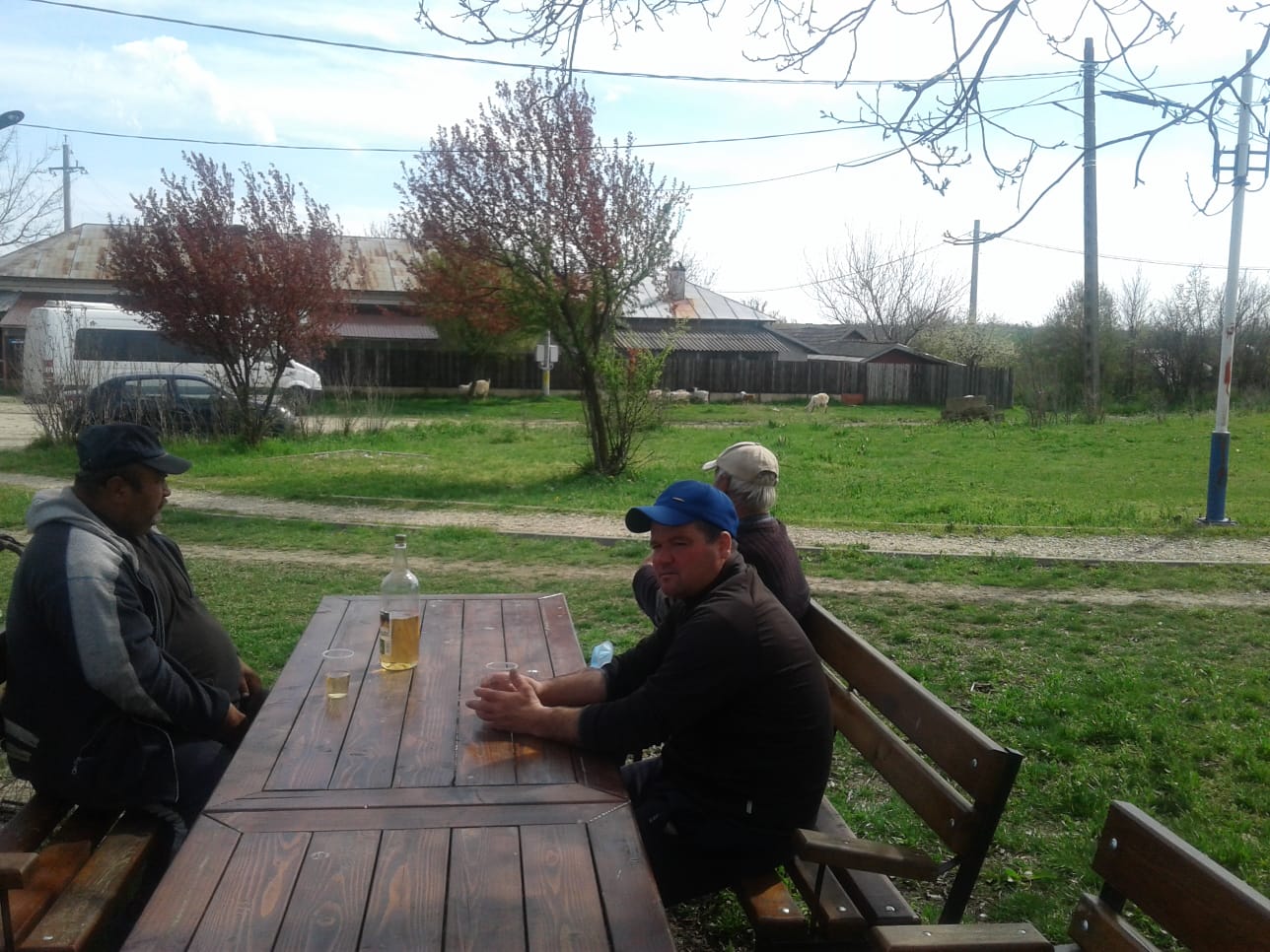
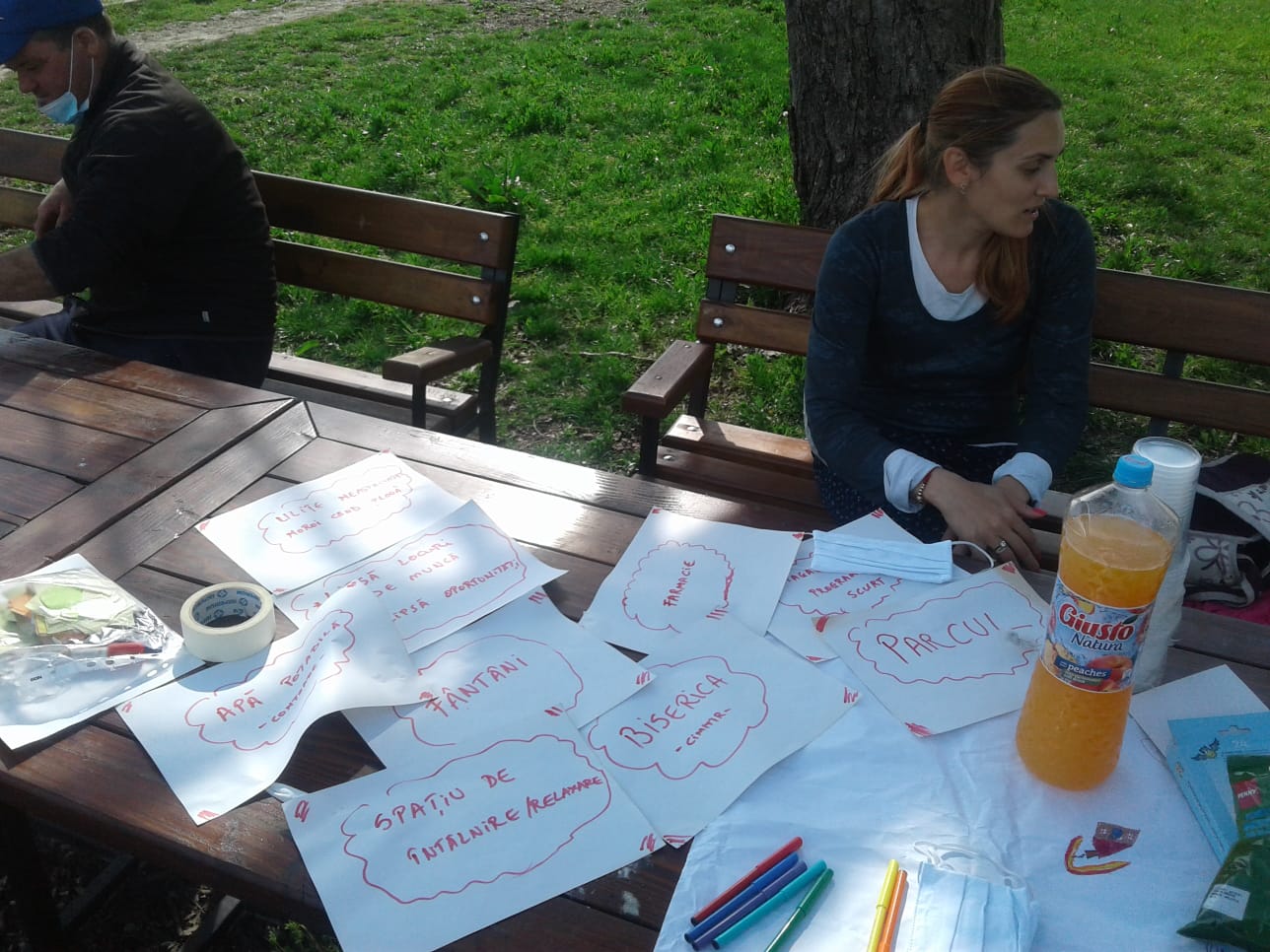 The community organizer established a connection with the citizens of Izvoru village through interviews based on a questionnaire, which highlights the problems which the inhabitants face, if they want to get civically involved in order to solve these problems and what locals have leadership potential.
The community organizer established a connection with the citizens of Izvoru village through interviews based on a questionnaire, which highlights the problems which the inhabitants face, if they want to get civically involved in order to solve these problems and what locals have leadership potential.
After the interviews, two meetings took place in which the problems identified by the 45 respondents were discussed and a small civic nucleus (3 people) decided to take steps in order to find solutions for the following:
- The establishment of a pharmacy
- The arrangement of the park and the creation of a playground in its interior
- The cleaning of the cemetery
- The mounting of a bar near a shaft on which carpets can be hung to dry
At the next meeting they will come up with a plan that will try to find the best way in which the local population can communicate with the local authorities. When it comes to the issue of the pharmacy, signatures will be gathered and a petition will be submitted to the mayor's office.
An obstacle that prevents the local community from meeting is the lack of a space in which they can do so. At the moment, the meetings take place in the centre of the village or in the houses of the citizens involved.
Ciobotea
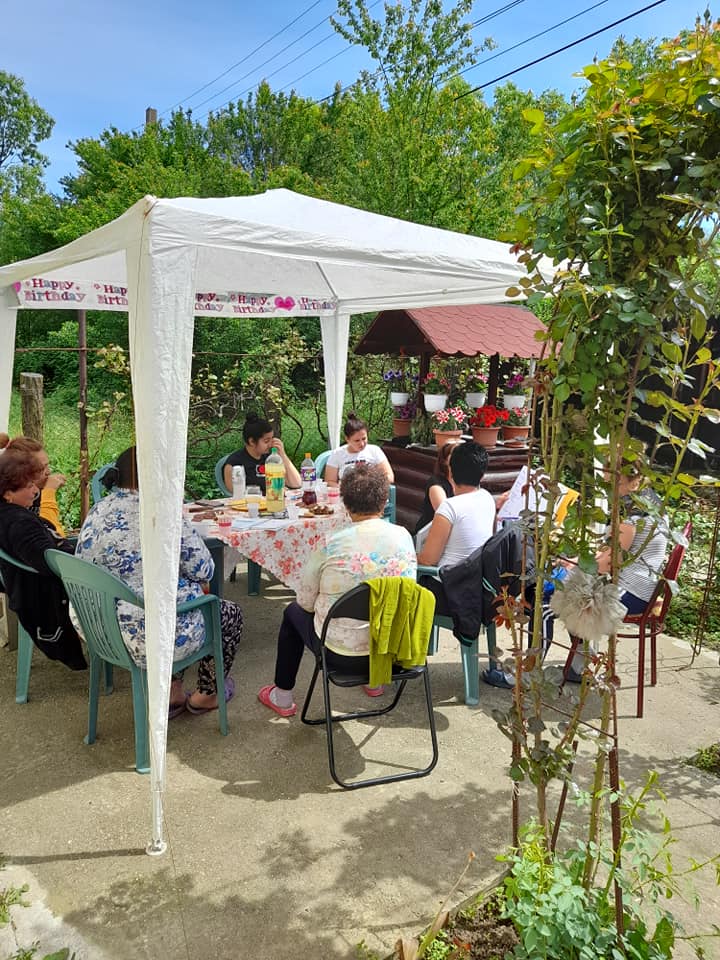
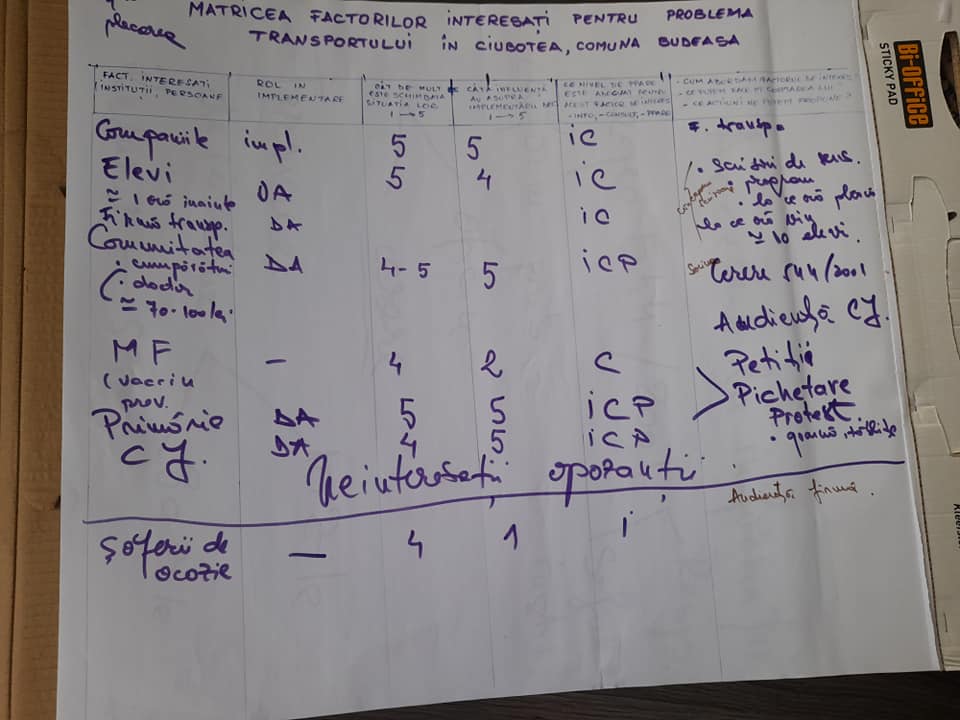

 Ciobotea
Ciobotea
The process of community organizing has begun in Ciobotea through a research (interviews based on a questionnaire) regarding the problems that the villagers face. We conducted interviews with 49 citizens of Ciobotea. These interviews helped us build a relationship with the members of the community and identify the persons who have the potential to become activists.
The community organizer made a report that was presented to the local community.
Later, together with three ladies from Ciobotea, Sorina, the community organizer, went to an audience at Budeasa City Hall, in order to present to the mayor the agenda of the community, the priorities and the needs of the inhabitants.
After the audience with the mayor, the group disseminated the information received to the rest of the citizens. By doing this, some of these citizens started to become interested in getting actively involved in the process of solving these problems and stared to constantly attend the meetings. A civic group was formed (3-6 persons). In the first meetings they discussed about the problems that plague the community and they prioritized them. They decided to tackle the two that they found most pressing: the lack of a bus that could transport them to the village and the lack of pressure in the water network.
This led to the submission of 2 petitions:
- The citizens' petition regarding the problem of pressure of the water network in Ciobotea at the two institutions responsible for remedying the situation, namely the Mioveni Urban Services and Budeasa City Hall. This petition was signed by 33 citizens.
- The petition related to one of the most pressing problems: the fact that the bus that serves the route Valea Marului - Pitesti does not reach Ciobotea (it does not have a station in the village). In order to solve this problem, a petition was sent to the Arges County Council requesting the expansion of the route.
The answer of the County Council was encouraging, in the sense that, in their response, they stated that “the demand will be analysed and it will be took into consideration when the elaboration and approval of the future County Transport Program will happen."
In Ciobotea we have regular meetings with the villagers. The citizens have learned useful information about the free access to information of public interest and they worked on the matrix of stakeholders for the transport problem. Now, the group plans its next steps in order to convince the institutions to resolve the two problems.
The community organizer has involved in the process of community organizing not only the adult population but also the youth and children. On the 1st of June the children had the possibility to draw how they envision their ideal version of the village and they listen to a story about civic involvement.
Write comment